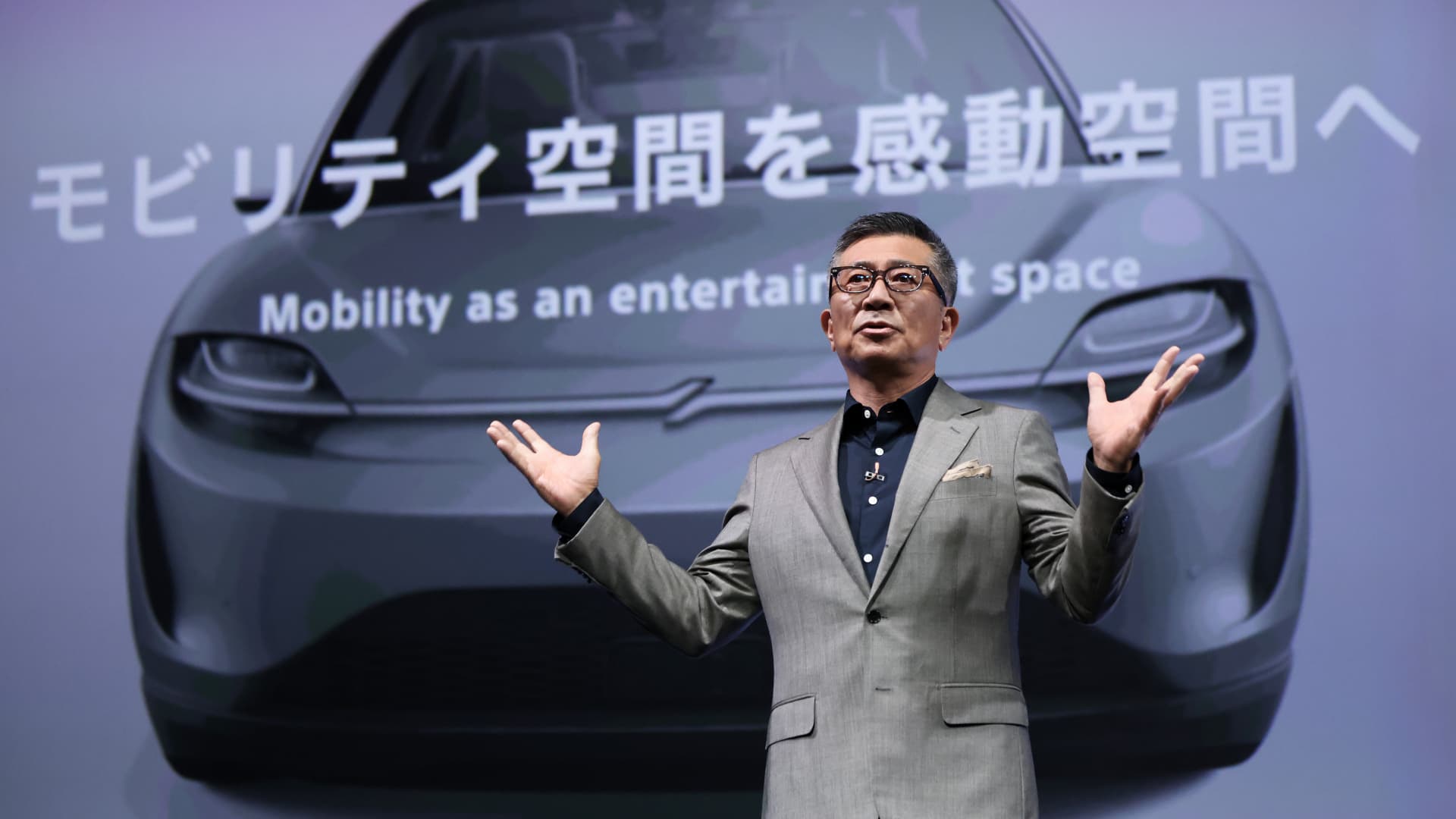Sony Honda Mobility CEO Yasuhide Mizuno recently spoke at a news conference in Tokyo, discussing Japan’s efforts to become a major player in the electric vehicle (EV) space. As part of these efforts, Japan has signed a critical minerals trade deal with the U.S. in order to strengthen supply chains and promote EV battery technologies.
The deal between Japan and the U.S. allows minerals from Japan to meet sourcing requirements for U.S. electric vehicle tax credits, unlocking up to $7,500 per vehicle. This is a significant step for Japan, as it aims to make up for lost ground in the EV market. Currently, Japanese automakers account for less than 5% of the global EV market, compared to Western and Chinese automakers who control approximately 90%.
However, Japanese automakers like Toyota and Honda are determined to catch up. Toyota’s new CEO, Sato Koji, announced plans to release 10 new battery electric vehicle models by 2026, with a target of 1.5 million in annual sales. Honda also plans to produce more than 2 million EVs annually by 2030, with the ultimate goal of selling only battery electric vehicles or hydrogen-powered EVs by 2040.
While Japanese automakers have previously focused on hybrids and hydrogen, they are now expanding their all-electric vehicle lineups to keep up with the growing demand for battery electric vehicles. In Japan, hybrid EVs still dominate new EV sales, accounting for 96.8% of sales. However, globally, battery electric vehicles are driving the growth in the EV market, representing over 70% of total annual growth.
Japan’s main challenge in the EV market is its dependence on China for critical minerals used in EV components. China currently refines 90% of rare earth elements and 60% to 70% of lithium and cobalt, which are essential for EV batteries. To diversify its supply chain and reduce reliance on China, Japan is exploring new technologies that use fewer rare earth metals and is also exploring alternative sources such as deep sea mud. However, finding alternatives will take time and extensive investment.
In the meantime, Japan is focusing on economic cooperation with other countries as a counterbalance to its dependence on China’s supply chains. The government is promoting critical mineral resources development with the G-7 and other like-minded countries. Additionally, Japan is seeking partnerships with countries like Indonesia, which has one of the largest nickel reserves in the world, a critical component in lithium-ion battery cells.
The Japanese government is also providing direct funding for mining and development projects by Japanese companies to mitigate risks and support the growth of the EV sector. State intervention is seen as necessary in the short term to overcome challenges such as the long time horizon of mining projects and price volatility of minerals.
While Japan has taken significant steps to advance its position in the EV market, it remains to be seen whether these initiatives will lead to the desired outcome. Nonetheless, the critical minerals trade agreement with the U.S. and the efforts from automakers and state agencies demonstrate Japan’s determination to become a major player in the EV space.
Denial of responsibility! VigourTimes is an automatic aggregator of Global media. In each content, the hyperlink to the primary source is specified. All trademarks belong to their rightful owners, and all materials to their authors. For any complaint, please reach us at – [email protected]. We will take necessary action within 24 hours.


